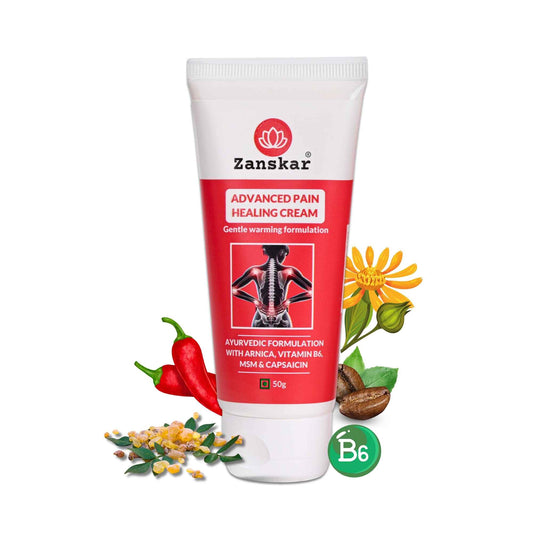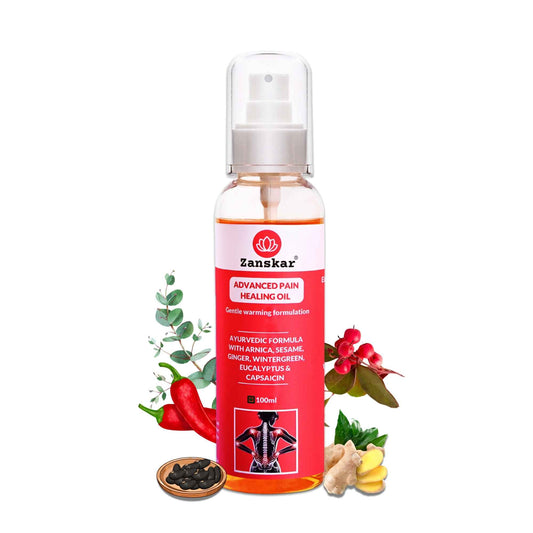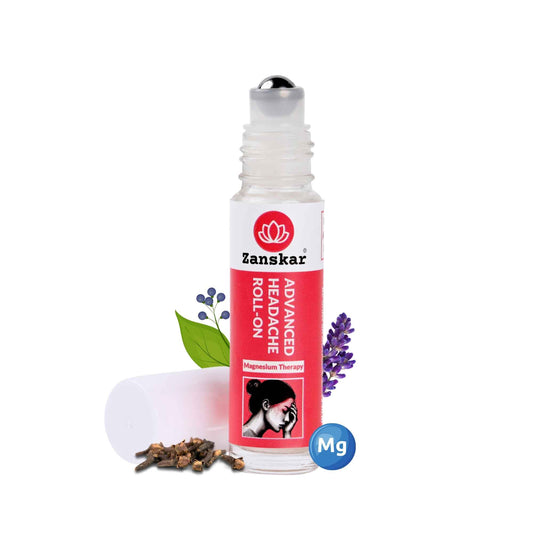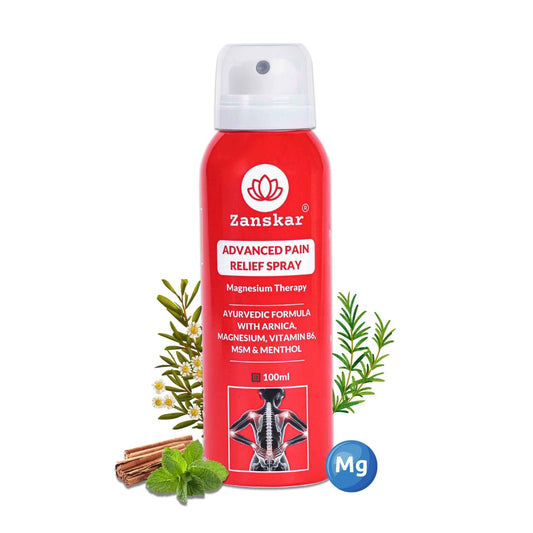
The Ultimate Migraine Diet Guide: Safe Foods and Potential Triggers by Category
When you’re managing migraine, what you eat can matter almost as much as what you take. At Zanskar we believe in blending natural wellness with clinical insight—so here’s your go-to guide on foods that may help reduce migraine risk, and foods you might want to limit or avoid.
Why Food Matters in Migraine
Migraine is more than a headache—it’s a neurologic disorder with multiple triggers including diet, sleep, hormones, and environment. Specific foods can act as triggers for some people by influencing vascular changes, neurotransmitter levels (e.g., serotonin), or by introducing food additives, preservatives or tyramine/phenylethylamine compounds. Using a “safe foods” framework helps reduce trigger load and supports your body’s resilience.
Our experts suggest using a migraine diary to track what you eat + headache episodes, and then gradually test foods.
Safe Foods & Potential Triggers — by Category
Below we summarise key categories with safe vs less-safe guidance
| Category | Potential triggers | Safer options |
|
Breads & grains
|
Fresh baked bread (from the grocer, bakery, or your own kitchen) | Fresh baked bread and pastries after it has cooled for a few hours. Store-bought bread and rolls in white, wheat, rye, pumpernickel |
| Fresh donuts and Danish pastries | English muffins | |
| Nut breads, cheese breads, chocolate breads, raisin breads | Quick breads like pumpernickel or zucchini breads | |
| Pizza—pizza crust is fresh bread made with yeast | Any bread made with yeast (like sandwich breads, dinner rolls) if it is at least 24 hours old | |
| Rice mixes with flavorings | Plain rice (white, brown, etc.) that you prepare at home | |
| Pasta or noodle dishes with added flavorings (like meal mixes) | Plain pasta or noodles | |
| Cereal | Cereals with nuts, raisins, dried fruit, peanut butter, coconut (like many granola-type cereals) Cereals sweetened with aspartame |
Many commercial cold cereals are migraine-safe—the simpler, the better |
|
Chips
|
Potato chips made from potato paste molded into uniform shapes | Plain potato chips made from potato slices (some people can have salt & vinegar chips but others can’t) |
| Most strongly seasoned corn chip or tortilla chip snacks (if the advertisement for the salty or savory snack mentions “intense” flavor, it probably goes in this column) | Corn chips and tortilla chips (unflavored or mildly flavored) | |
|
Cakes, cookies, candy, mints/chewing gum
|
Fruit pies made with lemon juice or lemon extract Fruit pies made with raisins and/or other dried fruit (some apricot pies use dried apricots) |
Fruit pies (like blueberry and apple) if they’re made without lemon juice |
| Chocolate cake | Vanilla or cinnamon swirl cake, pound cake | |
| Cookies and cakes made with peanut butter, almond extract, coconut | Shortbread cookies, oatmeal cookies without raisins | |
| Desserts made with buttermilk and/or sour cream | Rice pudding without raisins | |
| Milk chocolate or dark chocolate candy | White chocolate | |
| Any desserts, sweets, mints, chewing gum made with nuts | Any of the above without nuts | |
| Any desserts, sweets, mints, chewing gum made with aspartame | Any desserts, sweets, mints, chewing gum sweetened with sugar, sucralose, or stevia | |
|
Dips, sauces, spreads
|
Most sauces and dips prepared in sealed jars or cans: Prepared tomato sauces, alfredo or pesto sauces Prepared gravies, mustard dips, barbecue sauces Prepared salsas (these often contain MSG and other flavorings that may be migraine triggers) |
Homemade versions are safest |
| Fruit spreads made from dried fruits Fruit spreads/preserves made from potential trigger fruits |
Spreads free of artificial sweeteners and foods on the possible trigger list | |
|
Meats
|
Fresh or frozen ham Beef liver, chicken liver Hot dogs, most prepared luncheon meat/cold cuts |
Fresh chicken, beef, veal, lamb, fish, turkey, pork |
| Pre-packaged cured or smoked meats like bacon, ham, sausage, pepperoni, bratwurst, linguica, etc. | Sausage made without MSG, “natural flavor,” onion additives | |
| Fresh or frozen meat prepared with injected tenderizer or broth | Fresh or frozen meat prepared without tenderizer or broth | |
| Prepared meats Pre-marinated meat (hot, reheat at home, or cook thoroughly at home) Breaded chicken patties/nuggets |
||
| Canned meat or meat products, canned tuna in broth, anchovies | ||
|
Dairy products
|
Aged cheeses like cheddar, Brie, Colby, Monterey Jack, aged mozzarella, parmesan, Romano, Swiss | American cheese Soft, unaged cheeses like cottage cheese, cream cheese, ricotta cheese, fresh mozzarella |
| Chocolate milk, flavored milks | Plain milk | |
| Sour cream, buttermilk, yogurt | ||
| Items with aged cheeses: frozen pizzas, breakfasts, snacks | ||
|
Fruit and juice
|
Fresh fruits & juices made from: Citrus fruits (clementines, grapefruits, lemons, limes, mandarins, oranges, tangerines) Avocados, bananas, dates, figs, papayas, passion fruit, pineapples, plums, raspberries |
Fresh fruits & juices made from: Apples, apricots, blackberries, blueberries, cherries, grapes, kiwi, mangoes, melons (like cantaloupe, honeydew, watermelon), nectarines, peaches, pears, strawberries |
| Dried fruit, especially if preserved with sulfites | ||
|
Vegetables & legumes
|
Broad Italian beans, fava beans, lentils, lima beans, navy beans, onions, pea pods, sauerkraut and fermented vegetables | Artichokes, asparagus, beets (red), broccoli, Brussel sprouts, carrots, cauliflower, chickpeas, corn, eggplant, garlic, leeks, lettuce, mushrooms, okra, peppers, potatoes (fresh), shallots, spring onions, string beans, squashes, yams, zucchini |
| Instant mashed potato mix | Some frozen mashed potatoes (check label for seasonings) Canned or frozen peas |
|
| Prepared salads with seasonings or potential vegetable triggers | Preservative-free bagged lettuce | |
| Nuts, seeds, popcorn | Cheddar cheese flavored popcorn Some microwave popcorn (check ingredients for flavorings) Nuts of all kinds and nut butters Almond extract for cooking Coconut |
Unflavored popcorn that you pop at home Poppy seeds, pumpkins seeds, sunflower seeds without added natural flavor, sesame seeds |
| Soy products | Soy sauce, miso Tempeh, soy burgers Products containing soy protein isolate or concentrate |
Soy products of any kind until you have achieved a reduction in attacks or headache diaries clear soy as one of your triggers Lower-risk items to try: Soy milk, soy flour, plain tofu, soy oil |
| Sweetener | Aspartame Sweeteners made from potential trigger fruits |
Sugar, maple syrup, molasses, corn syrup, stevia, sucralose |
| Beverages | Coffee, coffee substitutes, black tea, green tea with caffeine Hot chocolate Colas with caffeine (regular or diet) Lemon-lime sodas, orange sodas, fruit-flavored sodas Root beer or any non-cola soda with added caffeine Any diet beverage sweetened with aspartame or saccharin |
Swiss water processed decaf coffee, black tea, green tea Caffeine-free herbal tea (like chamomile) Apple juice, apricot nectar, cranberry juice, grape juice, pear juice (without artificial sweeteners) Caffeine-free colas & sodas sweetened with sugar or corn syrup (not diet) Caffeine-free diet sodas and beverages sweetened with sucralose or stevia |
| Alcoholic beverages | Wine (especially red wine), champagne, beer, strong spirits or mixed drinks, mixers with migraine triggers | If you consume alcoholic beverages, vodka-based drinks (with migraine-safe mixers) tend to be tolerated the best |
How to Use This Guide
- Start with safer options — when grocery shopping or meal-planning, focus first on foods in the “Safer Options” column.
- Observe over ~4 weeks — According to our experts, if you see fewer attacks during this period when eating safer-list foods, you might have identified trigger reductions.
- Re-introduce with caution — If you miss something on the “possible trigger” list, try re-introducing one at a time, spaced out several weeks, and monitor your response.
- Remain individualised — What’s safe for one person may trigger another. This is not “one size fits all”.
How Zanskar Supports Your Migraine Journey
At Zanskar, we recognise that managing migraine is multifaceted. While dietary adjustments are critical, so too are effective relief tools for when symptoms strike. That’s why our Headache & Migraine Relief Roll-On (contains magnesium + lavender + clove) complements your lifestyle and dietary strategy.
- Magnesium: has documented benefits in reducing migraine frequency/severity in clinical studies.
- Lavender & clove: part of the botanical spectrum helping with calming head-ache onset and tension.
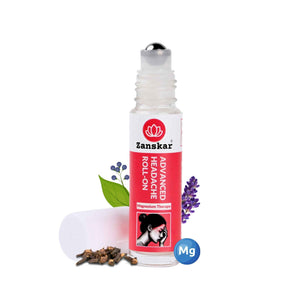
By integrating dietary vigilance with targeted relief tools, you’re giving yourself a holistic migraine-management toolkit.
Final Thoughts & Action Steps
- Start a food-migraine diary today: Note what you eat + when headaches occur — aim for a 4-week baseline period.
- Prioritise safe-list foods, gradually test out ones you’ve removed.
- Build your Zanskar toolkit: Use our product when you feel early warning signs of migraine or tension-headache onset.
- Stay consistent: We’re not chasing perfection, we’re reducing risk. Over time the frequency or severity of attacks may drop.
- Check with your doctor/neurologist: Especially if you have frequent migraines or use medication. Diet & relief tools are helpful but do not replace professional care.
Learn More About Us
If you have joint pain, muscle pain or headaches that makes it hard to move, Zanskar offers the most advanced full stack pain relief solutions for you.
Now available to purchase, Zanskar® pain-care range have unique bio-active formulations. It provides lasting relief from muscle and joint discomfort that you can feel good about. Get your fix before stocks run out - buy now.
You can also gain access to therapeutic exercises and stretches for your condition by downloading the Zanskar Health physiotherapy mobile app. Additionally, you’ll have a personal care team to guide, support, and tailor our program to you, including behavioral and nutritional coaching.
Download our mobile app here 👉 download and track your exercise streak.
Medical Review: This article is written and medically reviewed by Dr Nishtha Mittal (Senior Health Content Editor at Zanskar Health). This article and its contents are provided for educational and informational purposes only and do not constitute medical advice or professional services specific to you or your medical condition.




